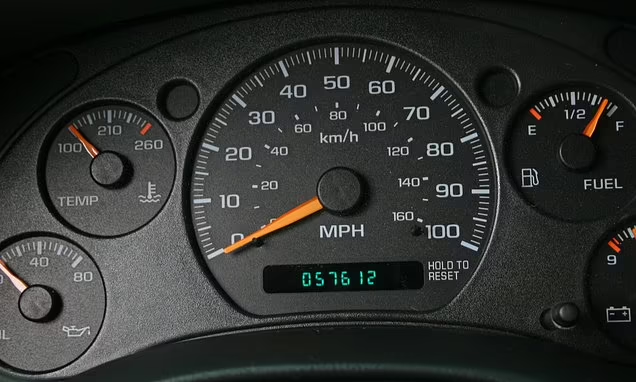A sudden drop in your car’s mileage can be frustrating, especially with rising fuel prices in India. Whether you drive a petrol, diesel, or electric vehicle, noticing a decline in fuel efficiency often signals an underlying issue that needs attention. While some causes are mechanical, others are related to driving habits or maintenance neglect. In this article, we’ll explore five common reasons why your car’s mileage may be dropping and how to address them.
1. Poor Driving Habits
Your driving style has a direct impact on fuel consumption. Rapid acceleration, sudden braking, and excessive idling all contribute to poor mileage.
- Why It Happens: Aggressive driving burns more fuel than smooth, steady acceleration. Frequent gear changes or riding the clutch can also reduce efficiency.
- Impact: Even on highways, rash driving can lower mileage by up to 20%.
- Solution: Drive smoothly, maintain consistent speeds, and anticipate traffic conditions. Avoid unnecessary revving and overuse of air conditioning.
Pro Tip: Use cruise control on highways when possible—it stabilizes speed and reduces fuel use.
2. Underinflated or Misaligned Tyres
Tyres play a critical role in maintaining optimal fuel efficiency. If your tyres are not inflated to the recommended pressure or are misaligned, your car has to work harder to move, consuming more fuel.
- Why It Happens: Underinflated tyres increase rolling resistance. Misalignment causes uneven wear and drag.
- Impact: Can reduce mileage by 5-10%.
- Solution: Check tyre pressure every two weeks and align wheels regularly.
Pro Tip: Follow your vehicle’s manual for the correct tyre pressure and rotate your tyres every 10,000 km for even wear.
3. Dirty or Clogged Air Filter
The air filter controls the amount of air entering the engine. A dirty filter restricts airflow, causing the engine to work harder and burn more fuel to maintain power.
- Why It Happens: Dust and debris accumulate over time, especially in Indian conditions with polluted air.
- Impact: Reduces mileage and engine performance.
- Solution: Clean or replace the air filter every 10,000 to 15,000 km or more frequently in dusty regions.
Pro Tip: A clean air filter can improve fuel efficiency by up to 10%.
4. Fuel System Issues
Fuel injectors, fuel pumps, or spark plugs that are not functioning correctly can severely affect combustion efficiency.
- Why It Happens: Deposits in the injectors or faulty spark plugs cause incomplete fuel burning.
- Impact: Wastes fuel and affects engine responsiveness.
- Solution: Get your fuel system cleaned and spark plugs checked during regular servicing.
Pro Tip: Use high-quality fuel and consider fuel additives occasionally to keep the injectors clean.
5. Skipping Regular Maintenance
Regular car servicing keeps all systems working efficiently. Missing scheduled maintenance often leads to small issues that affect fuel economy.
- Why It Happens: Overdue oil changes, dirty filters, and unchecked fluid levels affect engine performance.
- Impact: Gradual decrease in mileage, higher emissions, and potential long-term damage.
- Solution: Follow your car manufacturer’s service schedule, typically every 6 months or 10,000 km.
Pro Tip: Keep a log of your fuel consumption and servicing to monitor trends in mileage drops.
Final Thoughts
A drop in mileage is often a warning sign. Ignoring it may lead to higher running costs and even long-term damage to your vehicle. By addressing the common issues—such as driving habits, tyre care, and regular maintenance—you can restore and even improve your car’s fuel efficiency.
Being proactive not only saves money but also enhances your car’s performance and lifespan. Monitor your mileage, pay attention to how your car feels on the road, and don’t delay necessary inspections. A well-maintained vehicle is a fuel-efficient vehicle.

